CIVIL ENGINEERING Design major transportation projects Major focuses on the latest developments in the design
ABOUT THE DEPARTMENT
The department of Civil Engineering was established in the year 2011 with an intake of 60. Eight batches of students nearly 480 have successfully completed their graduation so far from the department. Our strength is our faculty. We have twelve dedicated faculty members and three supporting staff members. In 2015 the department has also started Master of Technology (M. Tech) programme with initial intake of 24 students with Transportation Engineering as specialization.
The department has nine physical laboratories to fulfill the needs of academic and industrial requirements including are Concrete, Transportation Engineering, Geotechnical Engineering , Environmental Engineering , Survey , Geology , Hydraulic Engineering , Computer aided engineering , GIS & CAD lab, Strength of materials, FM & HM Lab and Irrigation Design and Drawing. All laboratories are equipped with state of the art equipment to suit the emerging technologies and career opportunities
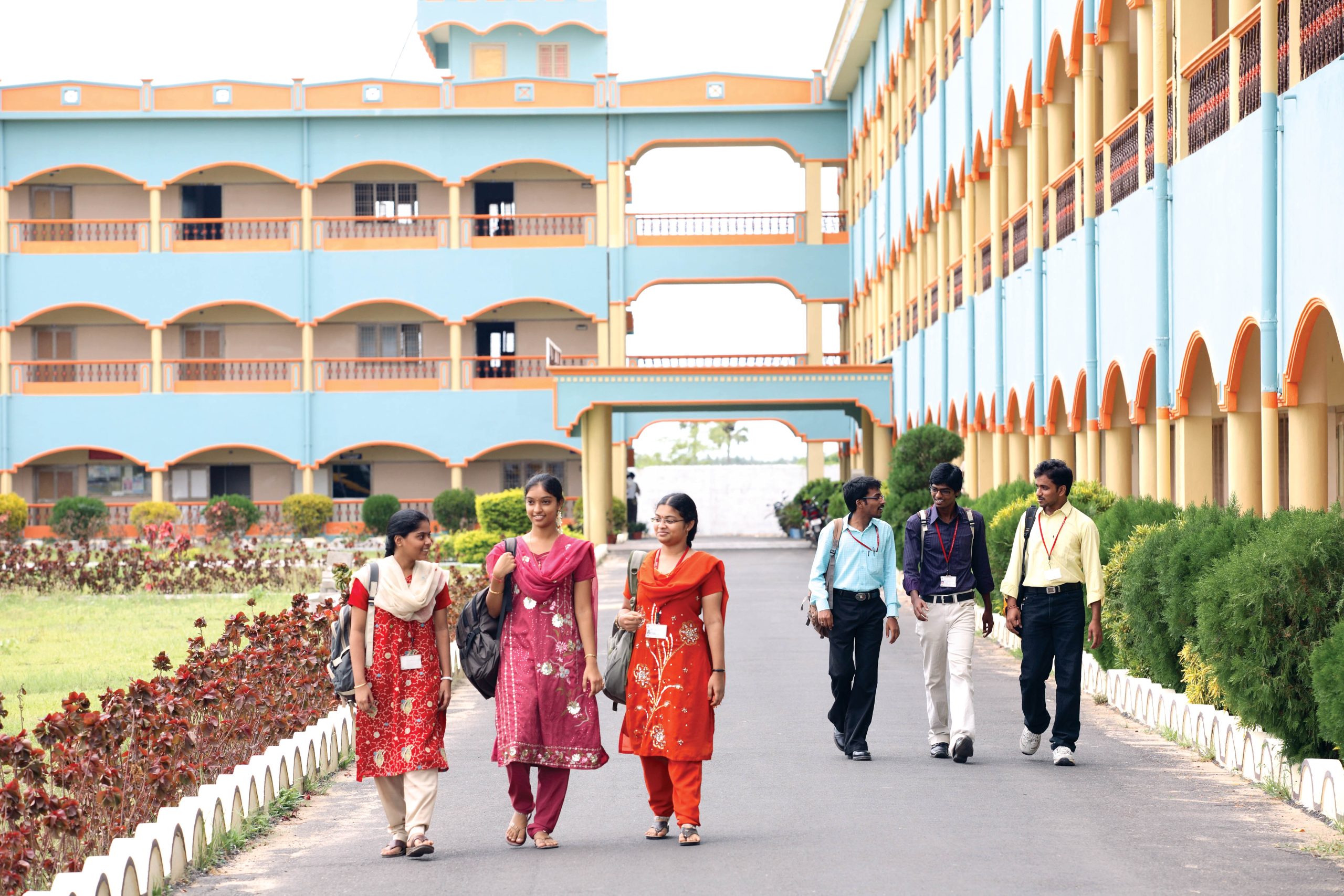
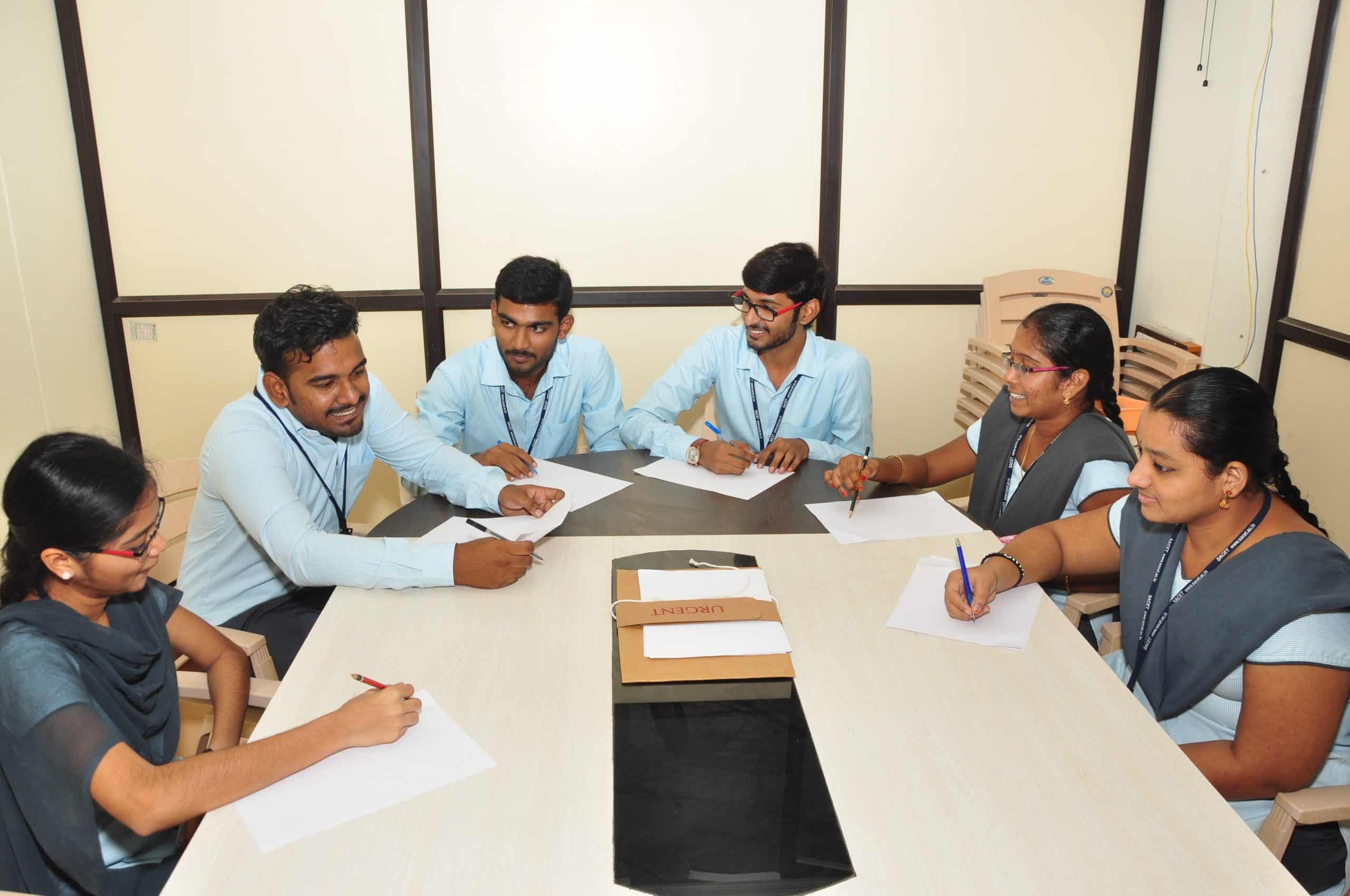
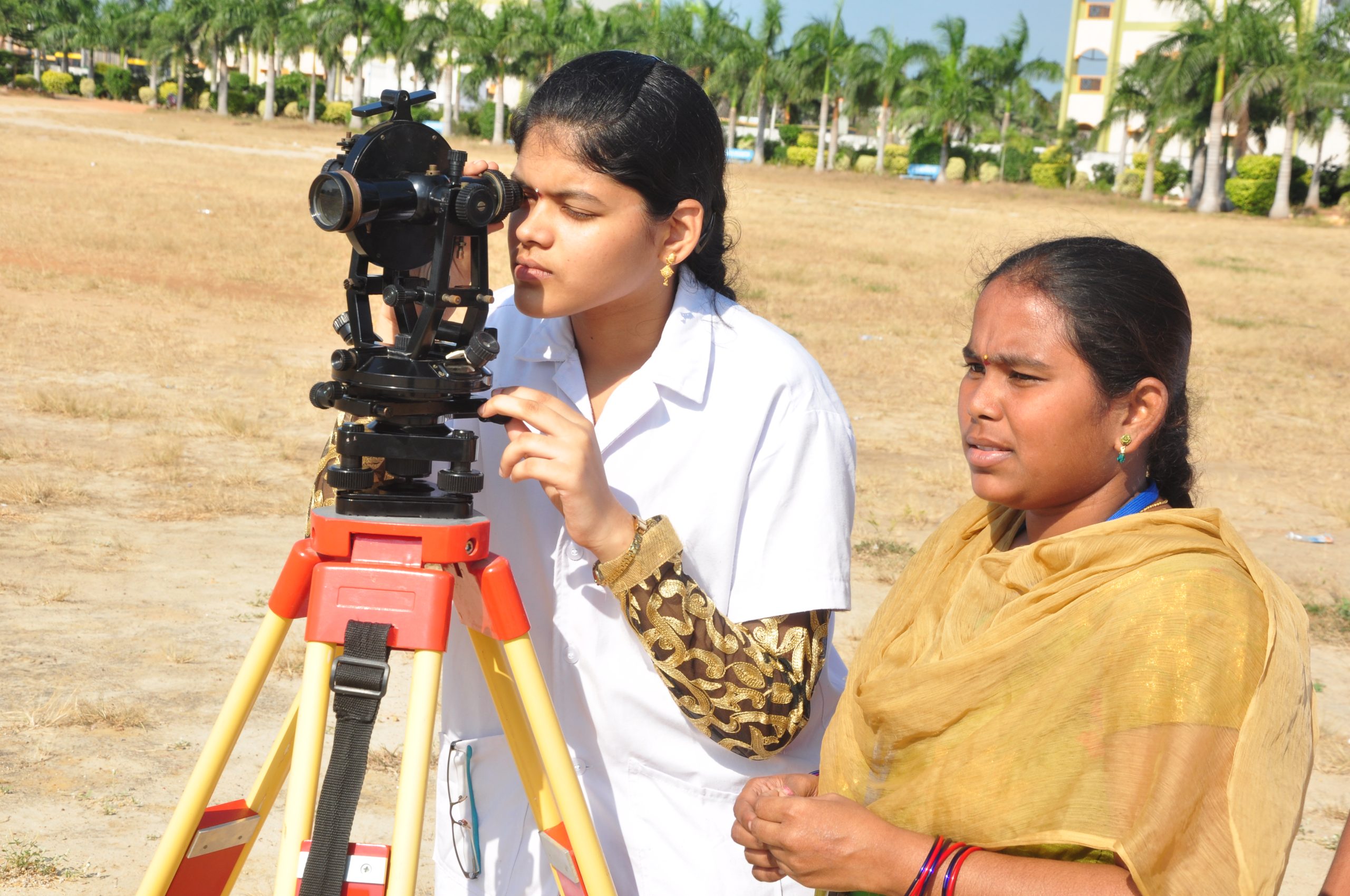
ABOUT HEAD OF THE DEPARTMENT
Dr. T. Kiran Kumar has been working as Professor, Department of Civil Engineering in a reputed institution – St. Anns College of Engineering & Technology, Chirala, Bapatla Dist., A.P. since July 2024. He has put in 25 years of teaching experience in various positions as a Assistant Professor, Associate Professor, Professor. His areas of Subjects are Water Resources Engineering, Irrigation & Hydraulic Structures, Fluid Mechanics, Hydrology, Design & Drawing of Irrigation Structure etc. He obtained his B.Tech. from S.V. University, Tirupati in the year 1994, M.Tech. from JNTU University Hyderabad in the year 1998. He obtained Doctor of Philosophy in Water Resources Engineering in the year 2012. From JNTU Ananthapur, A.P. He has published more than 65 papers in various International, National, Conferences, so far. He attended more 20 workshops and delivered guest lectures on various themes. He guided Ph.D., M.Tech., B.Tech. students. He received NPTEL believers Award in the year 2020. He is the recipient of the Best Global Teacher Award 2022 from D.K.S. Education Awards. He published a book entitled “Integrated Watershed Management in Drought Prone Areas” in the year 2023.

Dr.T.Kiran Kumar
Professor & HOD- Department of CIVIL ENGINEERING.
VISION
To become a nationally recognized centre for Civil Engineering Education with effective Teaching and Learning practices.
MISSION
DM1: To produce competent Civil Engineering students with ability to design, develop and problem solving skills.
DM2: To produce students with ability to use modern tools along with life long learning skills..
DM3: To promote entrepreneurship and soft skills.
DM4: To promote industry interaction, consultancy and concern for the society
- Program Educational Objectives (PEOs)
- Program Outcomes (POs)
- Program Specific Outcomes (PSOs)
- Activities
- Faculty
- BOS
PEO-1: Engage in gaining knowledge thru self-study, continuous education in civil engineering and other related fields
PEO-2: Imbibe concepts of engineering design and critical thinking skills
PEO-3: Ability to demonstrate problem solving and soft skills
PEO-4: Impart concepts of environment sustainability, project management and teamwork
PEO-5: Train and promote higher education and address society issues.
Engineering Graduates will be able to:
- Engineering knowledge: Apply the knowledge of mathematics, science, engineering fundamentals, and an engineering specialization to the solution of complex engineering problems.
- Problem analysis: Identify, formulate, review research literature, and analyze complex engineering problems reaching substantiated conclusions using first principles of mathematics, natural sciences, and engineering sciences.
- Design/development of solutions: Design solutions for complex engineering problems and design system components or processes that meet the specified needs with appropriate consideration for the public health and safety, and the cultural, societal, and environmental considerations.
- Conduct investigations of complex problems: Use research-based knowledge and research methods including design of experiments, analysis and interpretation of data, and synthesis of the information to provide valid conclusions.
- Modern tool usage: Create, select, and apply appropriate techniques, resources, and modern engineering and IT tools including prediction and modeling to complex engineering activities with an understanding of the limitations.
- The engineer and society: Apply reasoning informed by the contextual knowledge to assess societal, health, safety, legal and cultural issues and the consequent responsibilities relevant to the professional engineering practice.
- Environment and sustainability: Understand the impact of the professional engineering solutions in societal and environmental contexts, and demonstrate the knowledge of, and need for sustainable development.
- Ethics: Apply ethical principles and commit to professional ethics and responsibilities and norms of the engineering practice.
- Individual and team work: Function effectively as an individual, and as a member or leader in diverse teams, and in multidisciplinary settings.
- Communication: Communicate effectively on complex engineering activities with the engineering community and with society at large, such as, being able to comprehend and write effective reports and design documentation, make effective presentations, and give and receive clear instructions.
- Project management and finance: Demonstrate knowledge and understanding of the engineering and management principles and apply these to one’s own work, as a member and leader in a team, to manage projects and in multidisciplinary environments.
- Life-long learning: Recognize the need for, and have the preparation and ability to engage in independent and life-long learning in the broadest context of technological change.
PSO-1: Ability to analyze and design of infrastructure components
PSO-2: Train in project management and to contribute for community development
PSO-3: Promote higher education and research
Two-Day Workshop on "Training on Project Planning Software - Microsoft PROJECT"
Date: 6th – 7th February 2025 Time: 9:30 AM
Venue: Seminar Hall (131), SACET, Computer Labs: 201C, 201D
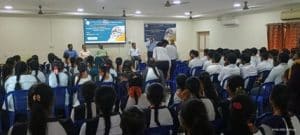
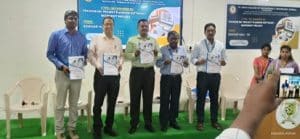
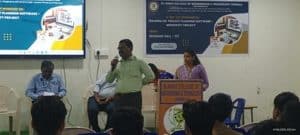
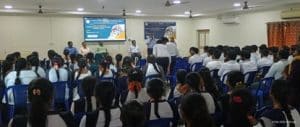
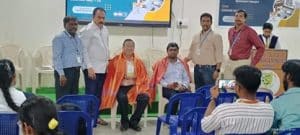
Project Expo on World Water Day on March 22nd-2025
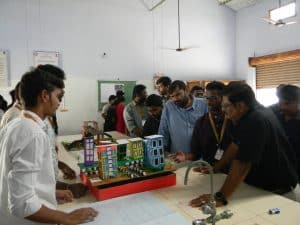
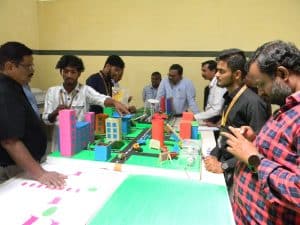
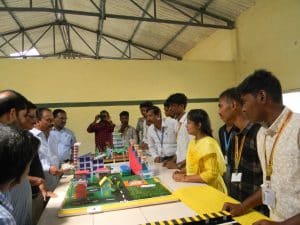
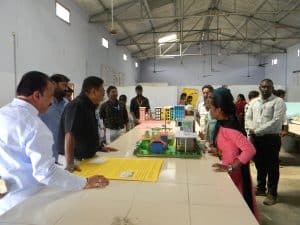
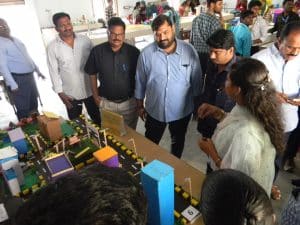
Guest Lectures
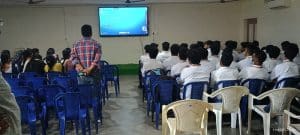
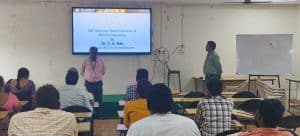
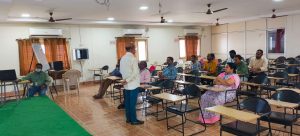
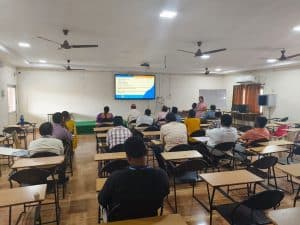
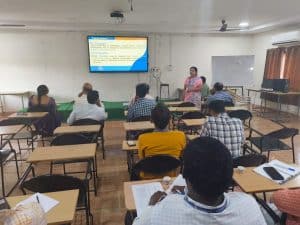
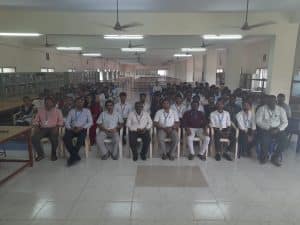
CIVIL FACULTY
| S.NO. | Name of the Faculty | Designation | Nature of Association | Highest Qualification | FACULTY LEVEL | Date of Joining |
| 1 | Dr TAPPETA KIRAN KUMAR | Professor / HOD | Regular | Ph. D. | UG | 08-07-2024 |
| 2 | Dr JYOTHI SWARUP DEEVI | Associate Professor | Regular | Ph. D. | UG | 01-07-2014 |
| 3 | Dr GUNDALA VIJAY KUMAR | Associate Professor | Regular | Ph. D. | PG | 01-08-2022 |
| 4 | CHEVURI PAVAN KUMAR | Professor | Regular | M. S | UG | 01-04-2016 |
| 5 | MATTE PRAVEEN | Assistant Professor | Regular | M.Tech. | UG | 20-10-2021 |
| 6 | LELLA VENKATA PAVAN KUMAR | Assistant Professor | Regular | M.Tech. | UG | 05-09-2022 |
| 7 | BATHINA VINODH BABU | Assistant Professor | Regular | M.Tech. | UG | 10-06-2024 |
| 8 | GOPATHOTI MOUNIKA | Assistant Professor | Regular | M.Tech. | UG | 10-06-2024 |
| 9 | DUDDU KISHORE BABU | Assistant Professor | Regular | M.Tech. | UG | 01-06-2024 |
| 10 | PALANKI BALAJI | Assistant Professor | Regular | M.Tech. | UG | 01-02-2024 |
| 11 | S. SIVA RAMA KRISHNA | Assistant Professor | Regular | M.Tech. | PG | 01-02-2021 |
| 12 | SHAIK BAJI | Assistant Professor | Regular | M.Tech. | UG | 01-02-2024 |

